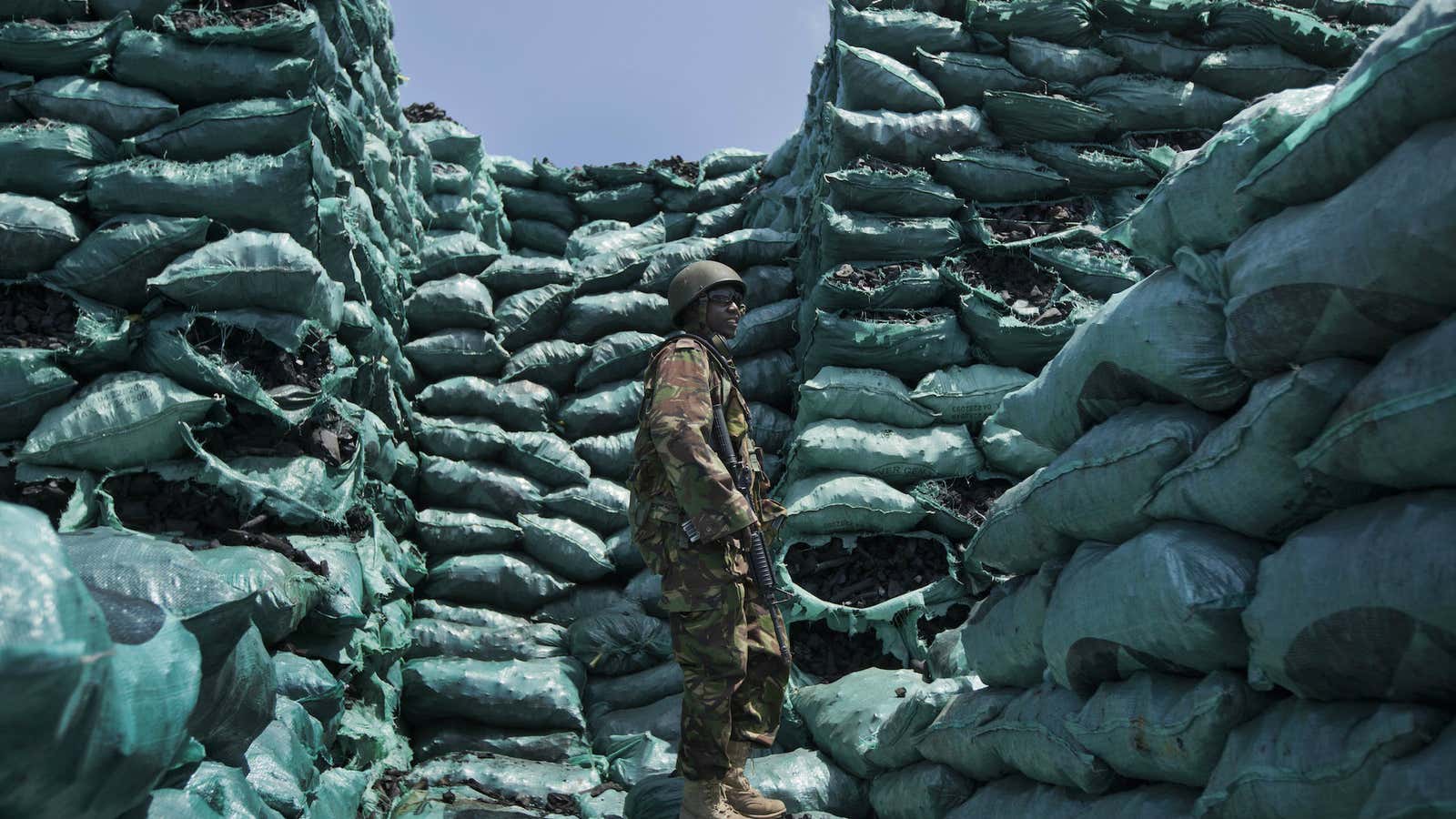Far from fighting al-Shabaab militants responsible for killing hundreds of Kenyans over the past four years, the Kenyan military is collaborating with them.
According to a report (pdf) from the Nairobi-based watchdog, Journalists for Justice, Kenyan defense forces, al-Shabaab, and Somali authorities make millions of dollars from smuggling sugar, and to a lesser extent, charcoal into Kenya.
The sugar smuggling industry has long been accused of funding the al-Shabaab insurgency and unsophisticated attacks in Kenya that require just transport and assault rifles. Kenyan government spokespeople have denied the allegations and called the report a smear campaign.
Ever since Kenyan military entered Somalia in 2011 as part of an African Union military mission to prop up the Somali government, al-Shabaab related violence has risen, reaching 115 attacks last year, the worst year. (This year, 148 were killed at Garissa university in the northeast and the year before 67 were killed at the Westgate shopping mall in Nairobi.) The country’s tourism industry, a critical source of foreign reserves for Kenya, has had a hard time recovering.
According to the report, based on interviews with members of the military, the Kenyan parliament, as well as foreign embassies, smugglers bring an estimated 150,000 tons of sugar into Kenya every year through the port of Kismayu in al-Shabaab controlled territory. Drivers pay the militants around $1,025 to enter, and then pay Kenyan defense forces (KDF) once they reach the border. Somali authorities also take a cut. Because Kenya’s sugar industry is tightly controlled, sugar is sold at higher prices in the country compared to the global market.
The KDF makes an estimated $13 million a year, while al-Shabaab earns about $12.2 million in these levies, according to the report. The group estimates the value of the sugar smuggling business could be as much as $400 million. “The illicit conflict economy is benefitting both al-Shabaab and those ostensibly opposing them,” the investigators concluded.
To protect local sugar producers, Kenya caps the amount of sugar it imports, pushing up the local price of the commodity. It costs about $570 to produce a tone of sugar in western Kenya, according to regulators, compared to between $240 to $290 in Egypt. Kenya imports up to 300,000 tonnes of sugar from its neighboring COMESA countries and consumes about 700,000 tonnes.
Kenyan authorities have made a show of cracking down on the industry by raiding the refugee camp of Dadaab near the Somali border and arresting people connected with the trade, but critics say that these have only been middle men. The report claims that a high ranking military official, KDF commanders, and members of the ministry of defense, immigration, and state house are all involved in the smuggling business, which receives the “protection and tacit cooperation of leaders at the highest echelons” of the government.
A police officer in Dadaab told Reuters earlier this year that smugglers “look at the money they make and don’t think about the money they give to al-Shabaab, and the kind of damage that will do.”
